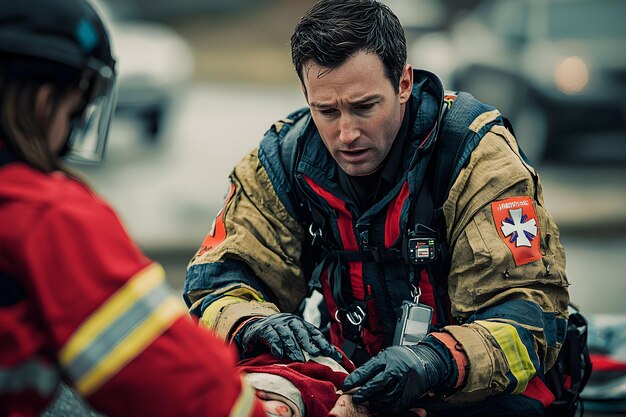How to Become an EMT Paramedic: Essential Degrees and Certifications
Embarking on a career as an EMT Paramedic is a rewarding choice for those looking to make a significant impact in emergency medical services. To excel in this role, acquiring the right education and certifications is crucial. The journey begins with completing a high school diploma or GED, serving as the foundational requirement. From there, aspiring EMTs must enroll in a state-approved EMT-Basic training program, which often includes coursework in anatomy, physiology, and medical procedures. Following successful completion, candidates need to pass the National Registry of Emergency Medical Technicians (NREMT) exam to earn national certification, a critical step in ensuring standardized skills across the board.
To advance further, aspiring paramedics can pursue an associate degree in Emergency Medical Services, which delves deeper into complex medical care and leadership practices. This degree not only enhances practical skills but is often preferred by employers seeking top-notch paramedic professionals. Once again, certification through NREMT is required at the paramedic level, ensuring proficiency in advanced life-support techniques and medical interventions. Continuous education and certifications, such as Pediatric Advanced Life Support (PALS) or Advanced Cardiac Life Support (ACLS), are also recommended for ongoing professional development. These steps not only pave the way for a fulfilling career but also underscore the significance of investing in quality education and training.
Key Education and Certifications for EMT Paramedics:
- 🎓 High School Diploma or GED: Basic requirement to start your EMT training.
- 📜 EMT-Basic Training Program: Essential first step in EMS education.
- 📝 NREMT Certification (Basic): Validates your competence in basic emergency medical skills.
- 🎓 Associate Degree in Emergency Medical Services: Recommended for paramedics looking to advance.
- 📝 NREMT Certification (Paramedic): Confirms your ability to perform advanced medical procedures.
- 📚 Continuing Education & Specialty Certifications: PALS, ACLS, and other certifications keep your skills current and sharp.
Equipping yourself with these credentials not only opens doors to numerous opportunities but also underscores the importance of being well-prepared to provide critical care in emergency situations.
